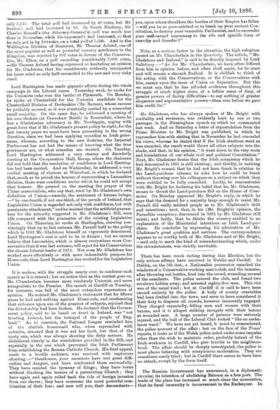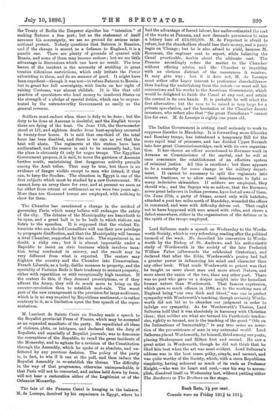The Russian Government has announced, in a diplomatic circular, its
intention of abolishing Batonm as a free port. The trade of the place has increased se- much since the annexation, that its fiscal immunity is inconvenient to the Exchequer. In
the Treaty of Berlin the Emperor signifies his " intention " of making Batoum a free port ; but as the statement of itself assumes his sovereignty, we see no ground for serious inter- national protest. Nobody questions that Batoum is Russian, and if the change is meant as a defiance to England, it is a puerile one. There are plenty of grounds of quarrel with Russia, and some of them may become serious ; but we see little advantage in discussions which can have no result. The true lesson of the incident is the necessity of avoiding in great treaties ridiculous restrictions, which only irritate the Power submitting to them, and do no manner of good. It might have been expedient—though it was not—to refuse Batoum to Russia ; but to grant her full sovereignty, with limits on her right of raising Customs, was almost childish. It is like that odd practice of speculators who lend money to insolvent States on the strength of a pledge of special duties, which can be seques- trated by the untrustworthy Government as easily as the general revenue.

















































 Previous page
Previous page